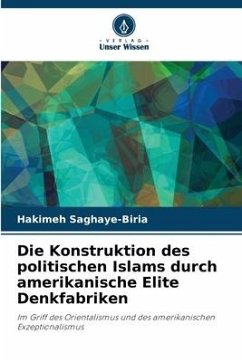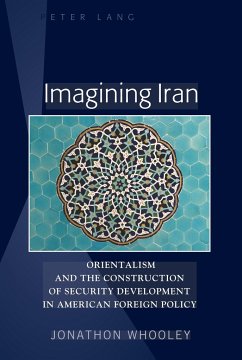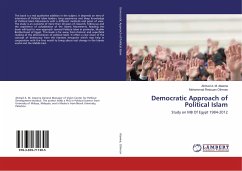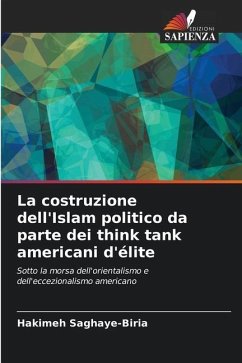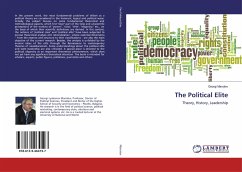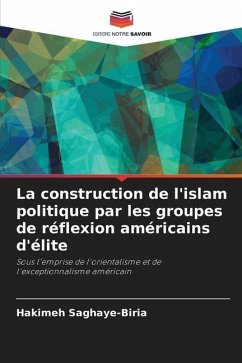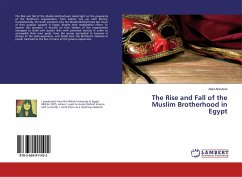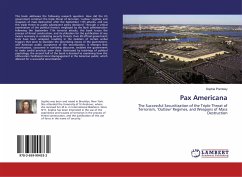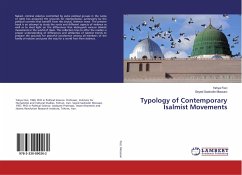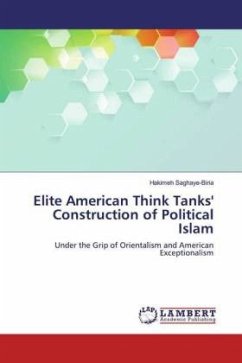
Elite American Think Tanks' Construction of Political Islam
Under the Grip of Orientalism and American Exceptionalism
Versandkostenfrei!
Versandfertig in 6-10 Tagen
41,99 €
inkl. MwSt.

PAYBACK Punkte
21 °P sammeln!
The present book uses constructivism and framing analysis to analyze the RAND, the Brookings Institution, and the Washington Institute for Near East Policy's (WINEP) production of expertise on U.S. policy toward political Islam. Theoretically, the author posits that think tanks, as part of epistemic communities, are important players in the construction of a nation's identity, interests, and possible courses of action to achieve those interests. This is done through the construction or deconstruction of ideational structures. Framing is one of the main tools through which this task is achieved...
The present book uses constructivism and framing analysis to analyze the RAND, the Brookings Institution, and the Washington Institute for Near East Policy's (WINEP) production of expertise on U.S. policy toward political Islam. Theoretically, the author posits that think tanks, as part of epistemic communities, are important players in the construction of a nation's identity, interests, and possible courses of action to achieve those interests. This is done through the construction or deconstruction of ideational structures. Framing is one of the main tools through which this task is achieved. Despite their differences, what binds the framing of the three think tanks together is their rejection of the political Islam that threatens the hegemony of the United States and Israel in the region, i.e. that of the Islamic Republic of Iran and its affiliate resistance Islamic groups. This study also attests to the evolution of Orientalism from a simple West vs. Islam discourse to a Western-endorsed Islam vs. unacceptable variants of Islam. The study also shows how the three elite think tanks move beyond mere purveyors of ideas to political actors building transnational networks.



